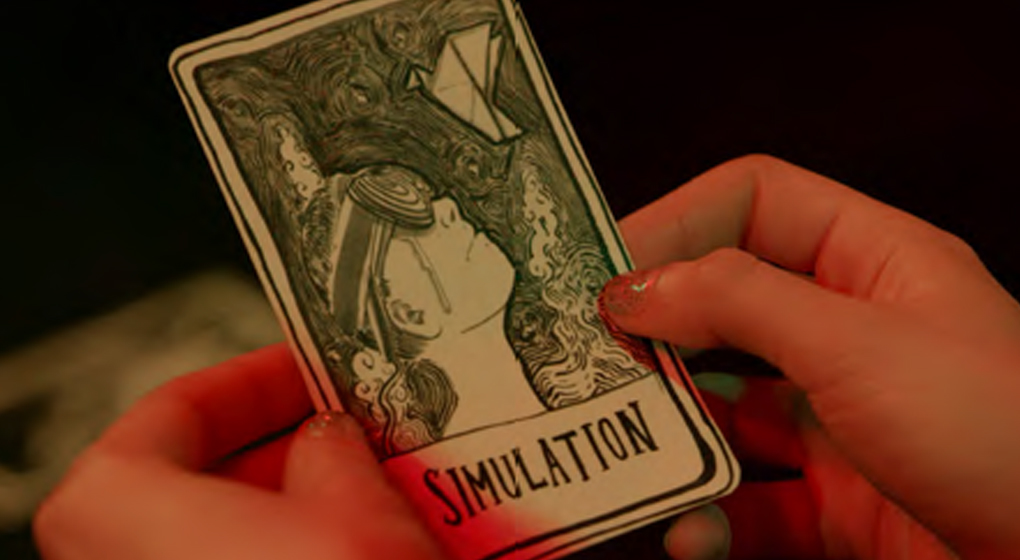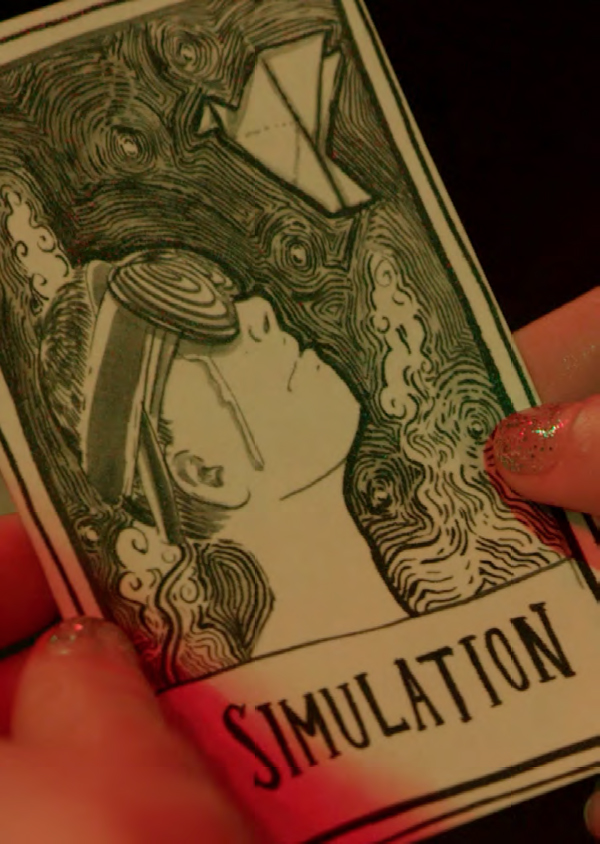LA SEDUTA / THE READING
2017, 14’09”, Italian Pavilion Venice Biennale, produced by In Between Art Film



2017, 14’09”, Italian Pavilion Venice Biennale, produced by In Between Art Film
Milan, 1985. Lives and works in New York. Her most recent film After the Finish Line has been shown at the Whitney Museum in New York in January 2017, as a part of the Dreamlands project curated by Chrissie Iles. She is amongst the winners of the Graham Foundation grant 2016. She also collaborated with the education department of the Serpentine Gallery in London in order to work on the Dependance, Independence, Isolation. In 2016, she was one of the finalists for the Premio MAXXI, promoted by the MAXXI museum in Rome and won the Premio Illy Under 35 awarded to her during the 16th Quadriennale d’arte. Amongst her most recent exhibitions: A Wave in the Well, Sursock Museum, Beirut (RL), 2016; The Classroom, curated by Paola Nicolin, Milan (I), 2016; Movement Break, Kadist foundation, San Francisco (US), 2015; Playing Truant, Gasworks, London (UK), 2012; La Montagna Verde (Dove? Nel Deserto. Per Dove? Verso il nulla), curated by Gabi Scardi, Via Farini, Milan (I), 2011.
She also took part in collective exhibitions including: The Eighth Climate, 11. Gwangju Biennale (ROK), 2016; 16a Quadriennale d’arte. Altri tempi, altri miti, Palazzo delle Esposizioni, Roma (I), 2016; Ennesima, curated by Vincenzo de Bellis, Triennale di Milano (I), 2015; Undiscovered Worlds, the High Line Art, New York (US), 2015; Really Useful Knowledge, Museo Reina Sofía, Madrid (E), 2014; Utopia for Sale?, curated by Hou Hanru, MAXXI, Roma (I), 2014. Her work also revolves around organizing workshops, lessons and seminars at ESAD Grenoble, 2016, The New School, 2015, Sandberg Institute, 2015, Museo del 900, 2013, NABA, 2012, Birkbeck University, 2011. She attended the Whitney Independent Study Program in 2012.
Adelita Husni-Bey’s video The Reading (2017) was developed through a workshop held in Mannahatta (Lenape territory, known as Manhattan, New York) with a group of young people, selected via an open call circulated among a number of museum education departments around the city. This workshop, which took place in February 2017, included a series of meetings, discussions, and experimental theater exercises. Working with the artist and the other facilitators, the participants reflected on their own connections to the environment and to the exploitation of the earth, examining a series of complex questions related to ideas of extraction, threat, technology, use, value, and vulnerability. These themes appear in the video in the form of a tarot deck designed by the artist herself during the recent indigenous protests against the construction of a pipeline near the Standing Rock Reservation.
In the video, the participants, who are seated around a table, draw inspiration from a tarot reading performed with Husni-Bey’ s deck to talk about their own spiritual, colonial, and technological relationships to the earth and land. The artist uses the tarot reading as both a magical and a pedagogical tool: the young people – who in the video are seeing these cards for the first time – contrast an efficiency-based, capitalistic mindset, which views the earth as a source of profit to be mined, with a vision of it as something closely intertwined with human life, to be treasured and protected. The film cuts between the discussion around the table and scenes in which the participants perform a series of exercises inspired by themes adopted during the initial workshop, and based on the Theater of the Oppressed. Alongside the video, a series of luminescent silicone hands realised by Husni-Bey seems to suggest the advent of a virtual, prosthetic future, hinting at our own involvement in the consumption of resources and in new forms of colonization.
Necessary cookies are absolutely essential for the website to function properly. This category only includes cookies that ensures basic functionalities and security features of the website. These cookies do not store any personal information.
Any cookies that may not be particularly necessary for the website to function and is used specifically to collect user personal data via analytics, ads, other embedded contents are termed as non-necessary cookies. It is mandatory to procure user consent prior to running these cookies on your website.